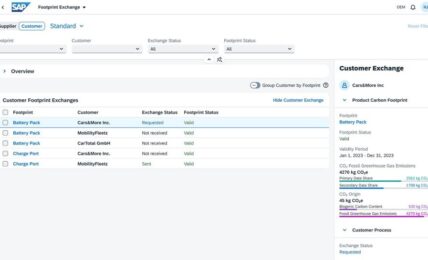KLM and electric aviation solutions startup ZeroAvia announced plans for a zero-emissions demonstration flight using hydrogen-electric engines powered by liquid hydrogen.
The test flight plans come as a series of initiatives are underway to target rapid aviation sector decarbonization, such as electrified propulsion or sustainable aviation fuel (SAF). Hydrogen, however, is viewed by some in the industry as a more promising long-term solution, given its potential to be produced through carbon-free methods, and its energy attributes.
Founded in 2018 in California, ZeroAvia develops hydrogen electric engines for commercial aircraft. According to the company, the technology enables low temperature water vapor as the only inflight emissions, and lower intensity electrical systems with the potential to offer significant cost savings.
KLM parent company Air France KLM Group unveiled a CO2 emissions reduction strategy in 2022, with goals to achieve 30% less CO2 emissions per passenger/km by 2030, and an ambition to reach net zero emissions by 2050. The strategy envisions scaling up the use of SAF on all flights to 10% by2030, and 63% by 2050, alongside additional actions including fleet renewal and working within the aviation sector on the development of innovations across areas such as aircraft design, engines, and new fuels.
Maarten Koopmans, Managing Director, KLM Cityhopper, said:
“KLM aims to be a front-runner in the journey towards a more sustainable future in aviation. That’s why we actively support and encourage innovation to drive industry change. When it comes to the future of zero-emission flights, KLM supports various technologies and innovations simultaneously. Together with our sector partners, we are conducting research on electric, hydrogen, and hybrid-powered flights and exploring ways to expedite these advancements.”
The planned demonstration flight, anticipated to take place in 2026 between two airport locations, will use ZeroAvia’s ZA2000 zero-emission, hydrogen-electric engines for large regional turboprop. The engine uses fuel cells to generate electricity, which in turn powers the motors to turn the aircraft’s propellers. According to ZeroAvia, studies indicate a reduction in climate impact from hydrogen-electric engines of up to 90% compared to typical kerosene-fueled flights.
James Peck, Chief Customer Officer, ZeroAvia, said:
“The world’s largest airlines are diving in to explore hydrogen-electric as a potential solution with increasing seriousness. We can’t wait to work with KLM, being an airline with such rich history, as we look towards a clean future for the industry.”



